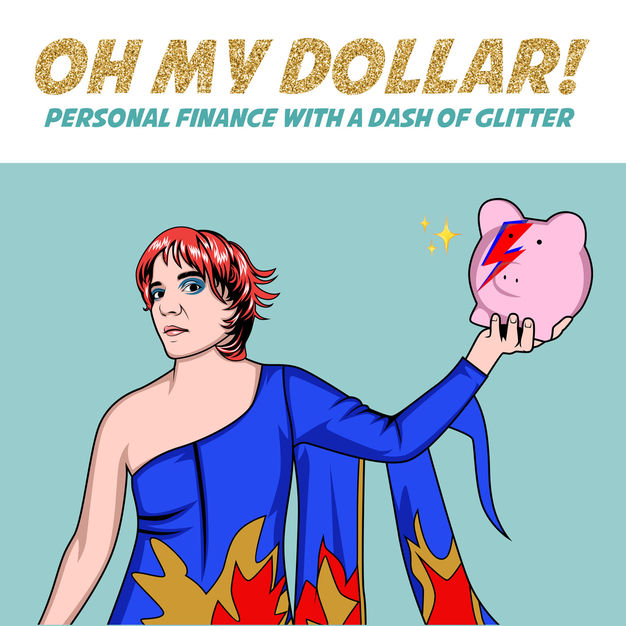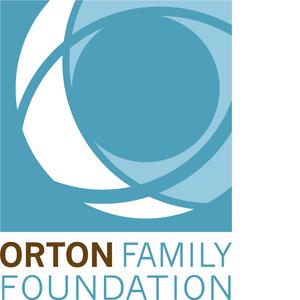
Why Isn't Anyone Talking About This?
[email protected] ([email protected])
An inquisitive, authentic look into the relationship between justice and the built environment. Conversations with leaders, fighters, and everyday people hoping and working for change. Unapologetic, well-informed, and ready to challenge you.
- 1 hour 6 minutesCommunity Is a Question
Lauren Moran creates interdisciplinary projects that are often participatory, collaborative and co-authored. They aim to experiment with and question the systems we are all embedded in by organizing situations of connection, openness and non-hierarchical learning. They are interested in developing sites for accessibility, collaboration with all different people they meet, and an expanded notion of institutional critique.
They have recently presented work at the Portland Art Museum (Portland, OR), a neighborhood block party (Portland, OR), Greensboro Project Space (Greensboro NC), Abteilung für Alles Andere (Berlin Germany), Art in Odd Places (New York, NY), Disjecta (Portland, OR), Port City Gallery (Portland, OR), and the El Paso Museum of Art (El Paso, TX). Find them on their website at www.laurengracemoran.com.
16 October 2018, 3:31 pm - 1 hour 6 minutesPortland for Everyone
In this episode, we chat with Madeline Kovacs on affordable housing and Portland's future.
Show Note Links:
The Color of Law by Richard Rothstein
Madeline Kovacs is the coordinator of Portland for Everyone at 1000 Friends of Oregon. Portland for Everyone is a local coalition of affordable housing providers, community based and environmental organizations, neighborhoods, and local businesses that advocates together for land use decisions that can deliver more abundant, diverse, and affordable housing options for Portlanders.
Prior to coordinating Portland for Everyone, Madeline worked for a decade in the international youth climate movement. This advocacy work included organizing on college campuses, national movement building and communications, and at the 2009 and 2011 United Nations Climate Negotiations. For three years she co-directed Project Survival Media, a global youth journalism network, covering direct actions and producing online media to amplify under-represented voices in the climate conversation.
Madeline's urban planning and housing work experience includes staffing Orange Splot LLC, a small housing development company and general contractor, and interning for two years at the Portland Bureau of Planning & Sustainability. She earned her BA in Political Science with a minor in Environmental Studies from Macalester College. Madeline currently serves on the Board of Directors of Proud Ground Community Land Trust.
20 August 2018, 5:33 pm - 59 minutes 8 secondsGabby Smashes!
In this episode, Alexis and Steph talk with Dawn Jones Redstone and Luann Algoso about how Gabby Antonio has been smashing the Imperialist, White Supremacist, Capitalist Patriarchy.
Dawn Jones Redstone is an award-winning gay, Latinx filmmaker best known as director and co-writer of the acclaimed, dramatic short film, Sista in the Brotherhood. Her short film We Have Our Ways just won Best Oregon Short Film at Portland International Film Festival And was named a “favorite Portland Film,” by the Willamette Week. Dawn is the recipient of the MRG Foundation’s 2016 Lilla Jewel Award and was named a Woman of Vision by the Oregon Daily Journal of Commerce. She is committed to creating films that help balance the media representation of women and people of color both in front of and behind the camera. Dawn has been working in the nonprofit world for 14 years as an employee, board member and a subcontractor and is ready to mine the wealth of comedy, this sector has to offer!
Luann Algoso is a Portland, Oregon-based writer, creative activator, cultural worker, and strategic communications specialist. In 2015, she received her Master of Arts degree in Conflict Resolution at Portland State University with the thesis titled, “Comedy as a Platform for Marginalized Voices: Asian American Women and the Disoriented Comedy Showcase”. She is a 2017 recipient of the Golden Spot Award Residency, a curated artist in residency program with Caldera Arts. You can follow her on Twitter and Instagram at @luann_algoso.
5 July 2018, 7:50 am - 1 hour 11 minutesThe Minidoka Swing Band
The Portland-based Minidoka Swing Band was formed in September 2007, as a tribute to Japanese Americans interned during World War II and to highlight the music popular in the Internment Camps.
In this episode, Alexis and Steph interview four members of The Minidoka Swing Band.
10 May 2018, 5:41 pm - 1 hour 17 minutesTamika Butler & Keyonda McQuarters
How do self-policing in public spaces, Blackness, and transportation advocacy relate? Learn stories on the intersections of these issues and more in our most recent discussion, with Tamika Butler & Keyonda McQuarters.
Tamika Butler is the Executive Director of the Los Angeles Neighborhood Land Trust. In her current role she grows healthier, safer, and stronger communities through the creation of urban parks and community gardens—addressing the critical lack of green and recreational spaces in greater Los Angeles' underserved neighborhoods. Prior to this, Butler was the the executive director of the Los Angeles Bicycle Coalition, bringing energy and passion to the quest for better bicycle access.
Keyonda McQuarters stepped up as the Portland Chapter’s admin of Black Girls Do Bike over a year ago and has been leading two rides on average per week ever since. Black Girls Do Bike is a national organization with over 75 local chapters. The organization was created to champion efforts introducing the joy of cycling to all women, but especially black women and girls.
12 November 2017, 11:00 pm - 48 minutes 59 secondsYouth Organizing for Environmental Justice
Why is youth organizing important, and what are the unique qualities of youth organizing? In this episode, we talked with Jennifer Phung, a community organizer working with Youth Environmental Justice Alliance (YEJA) and OPAL Environmental Justice Oregon.
Jennifer Phung is a community organizer born and raised in Oakland, California, and leads OPAL’s multi-racial youth organizing program, Youth Environmental Justice Alliance (YEJA). Jennifer’s organizing background comes from a range of experiences in labor, tenant organizing, and youth organizing. YEJA develops youth leaders through political education, campaign organizing, and skill-building to address issues of Environmental Justice. Jennifer works with YEJA to create a space for youth to gain skills to take collective action on issues affecting their communities.
Vivian Satterfield is second-generation bilingual Chinese American, born and raised in inner city Chicago. She believes in the power of organizing, the efficacy of people-centered public policy, and the therapeutic benefits of a long bike ride. Vivian is currently the Deputy Director at OPAL Environmental Justice Oregon, where she's helped bring grassroots-led campaigns and coalition efforts around issues such as lifting Oregon's 17-year long ban on inclusionary zoning, and the extensions of transfer times on TriMet, to success.
30 September 2017, 11:40 pm - 1 hour 25 minutesTwo Spirit Movement and Environmental Protection
What does it mean to be Two Spirit, and what has the Two Spirit movement's role been in protection of basic rights. We spoke with Candi Brings Plenty and Court Morse about their path, which led them to Standing Rock as water protectors.
Candi Brings Plenty, Oglala Lakota Sioux is a National Queer Cysgender Indiginous Woman and has worked for over two decades for not just Indigenous people, but for everyone in community to receive medicine. Candi is completing her Masters in Public Health Administration, and has a graduate certificate in Non Profit management. On levels related to gender, race, sexual orientation, and economic background, she is unmatched in her passion and strength to push every issue forward. Candi brings Plenty is a single mother of two beautiful daughters, an educator and community health worker, and spiritual practitioner.
Court Morse has over ten years of organizing and community action experience. Court grew up in Wisconsin and came out to Oregon to attend Portland State University. There she worked with the Oregon Student Association as student body president. She has had the opportunity since to run numerous political and human rights campaigns focusing on the environment, higher education, racial and LGBT justice, and immigrant/refugee rights, primarily in Oregon. Court is enrolled with the Sault Ste. Marie tribe of Chippewa Indians, Ojibwe, Anishinaabe and goes by she or they pronouns. She attended Oceti Sakowin on four occasions with the last trip a permanent move to camp prior to eviction. She toured with the Two Spirit Nation to tell the story of Standing Rock and to support other Two-Spirit Queer Indigenous warriors, elders and youth in their work. She's proud to stand by Candi as her close friend and support her vision for our people.
29 August 2017, 4:20 pm - 1 hour 5 minutesRace/Ethnicity & Neighborhood Housing Choice
How does race factor into the choices and opportunities involved in homeownership? We explored the answer to this question and many more with researcher C. Aujean Lee from Los Angeles.
C. Aujean Lee is a doctoral candidate at UCLA in the Department of Urban Planning. She received her Master's of Urban Planning from the University of Illinois at Urbana-Champaign and her B.A. from UCLA in Psychology and Asian American Studies. Her research examines the racial wealth gap with a focus on homeownership and the role of ethnic- and neighborhood-based institutions.
23 June 2017, 4:07 pm - 53 minutes 24 secondsOn Supremacy in Oregon
On April 29th, over 100 White people came to 82nd Ave in Portland, Oregon, chanting "USA", "Go back to where you come from", and other racist and anti-immigrant sentiments. A few days later , staff from APANO met with Mayor Ted Wheeler, APANO joined with partners to celebrate Asian Pacific American Heritage Month. A portion of 82nd Avenue sits within the Jade District, one of the most diverse neighborhoods in Oregon state.
Where did this come from, and what does this say about our region?
Zahir Janmohamed is the Policy Director for APANO, the Asian Pacific American Network of Oregon. He is also the co-host of Racist Sandwich, a podcast about race and food.
Scot Nakagawa has spent the last four decades as a pro-democracy activist, addressing issues of race and gender inequity, religious bigotry, and anti-LGBTQ oppression through community-based campaigns, cultural organizing, popular education, writing, and public policy advocacy.
Scot has worked with numerous organizations and movements over the years, having served as Fight the Right Organizer and Field Director of the National LGBTQ Task Force; Education Co-Coordinator of the Highlander Research and Education Center; Associate Director of the Western Prison Project (Partnership for Safety and Justice); and Executive Director of the MRG Foundation of Oregon, and of the Social Justice Fund, NW. Find him on Facebook.
19 May 2017, 3:50 pm - 48 minutes 10 secondsThe Portland People's Climate Movement March
In this episode, we will be talking with Vivian Satterfield with OPAL about the Portland People’s Climate Movement March.
Vivian is second-generation bilingual Chinese American, born and raised in inner city Chicago. She believes in the power of organizing, the efficacy of people-centered public policy, and the therapeutic benefits of a long bike ride. Vivian is currently the Deputy Director at OPAL Environmental Justice Oregon, where she's helped bring grassroots-led campaigns and coalition efforts around issues such as lifting Oregon's 17-year long ban on inclusionary zoning, and the extensions of transfer times on TriMet, to success.
27 April 2017, 2:40 pm - 1 hour 14 minutesDisplacement and Wage Theft: An Interview with NMASS
The National Mobilization Against Sweatshops (NMASS) is a multi-trade, multi-ethnic workers center where working people unite across industry, race, nationality and gender to fight for the changes needed in workplaces, communities and lives.
JoAnn Lum, Karah Newton, and Kai Wen Yang from NMASS joined us from their headquarters in New York City to discuss wage theft, displacement, and their "ambitious" plans for a just future.
24 April 2017, 4:03 am - More Episodes? Get the App
Your feedback is valuable to us. Should you encounter any bugs, glitches, lack of functionality or other problems, please email us on [email protected] or join Moon.FM Telegram Group where you can talk directly to the dev team who are happy to answer any queries.
 Parksify Podcast
Parksify Podcast
 Oh My Dollar!
Oh My Dollar!
 Orton Family Foundation
Orton Family Foundation
 XRAY In The Morning - Radio Is Yours
XRAY In The Morning - Radio Is Yours